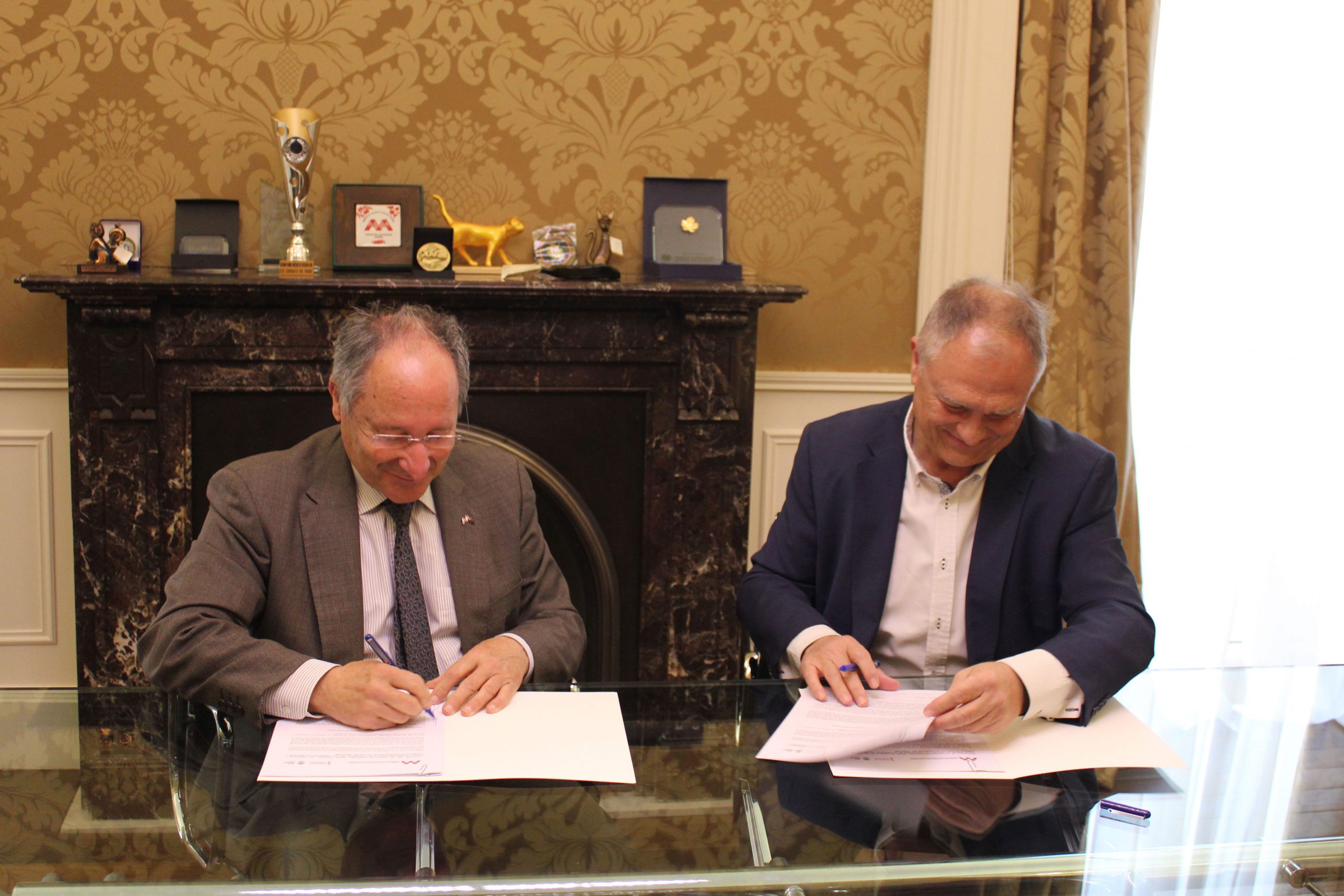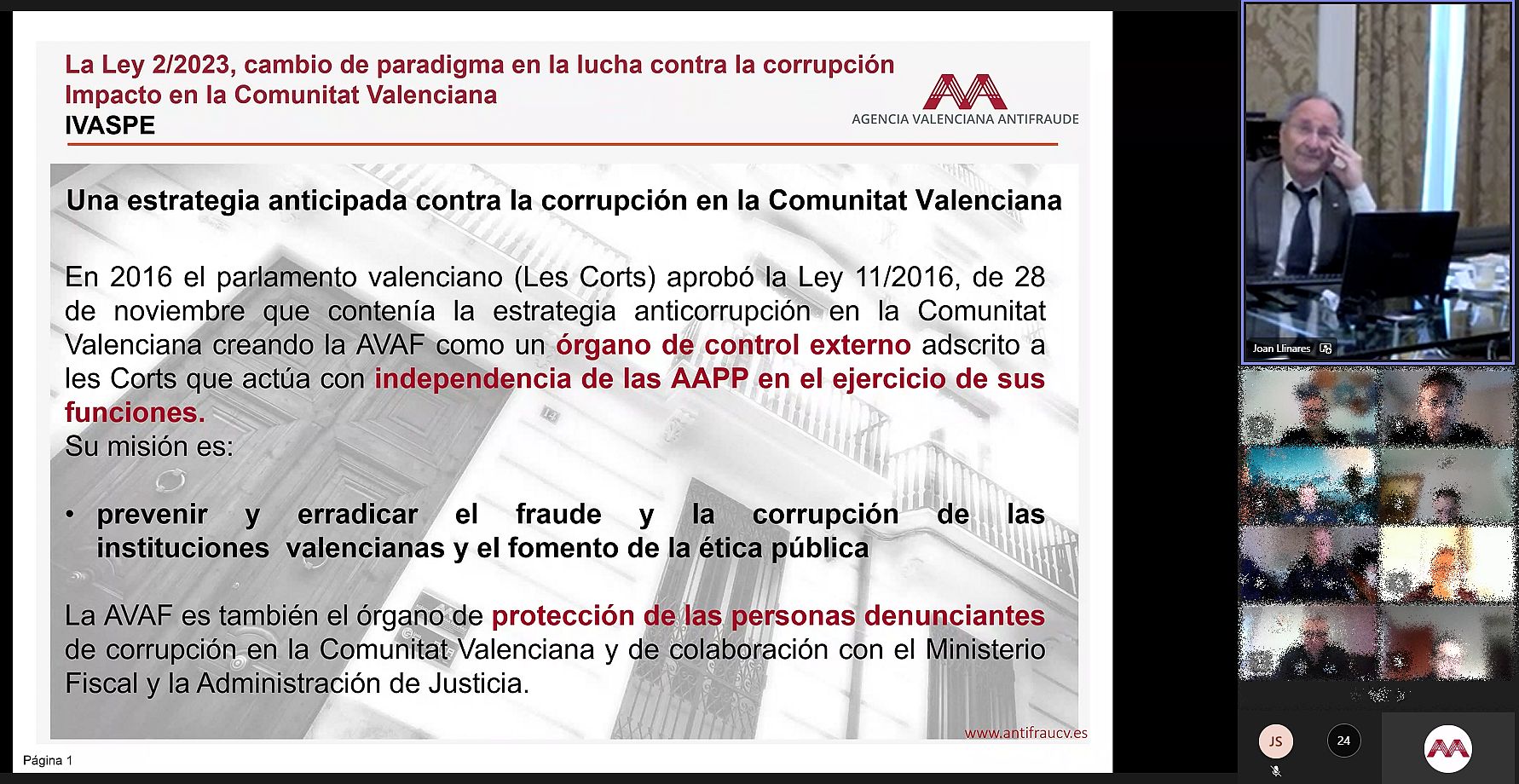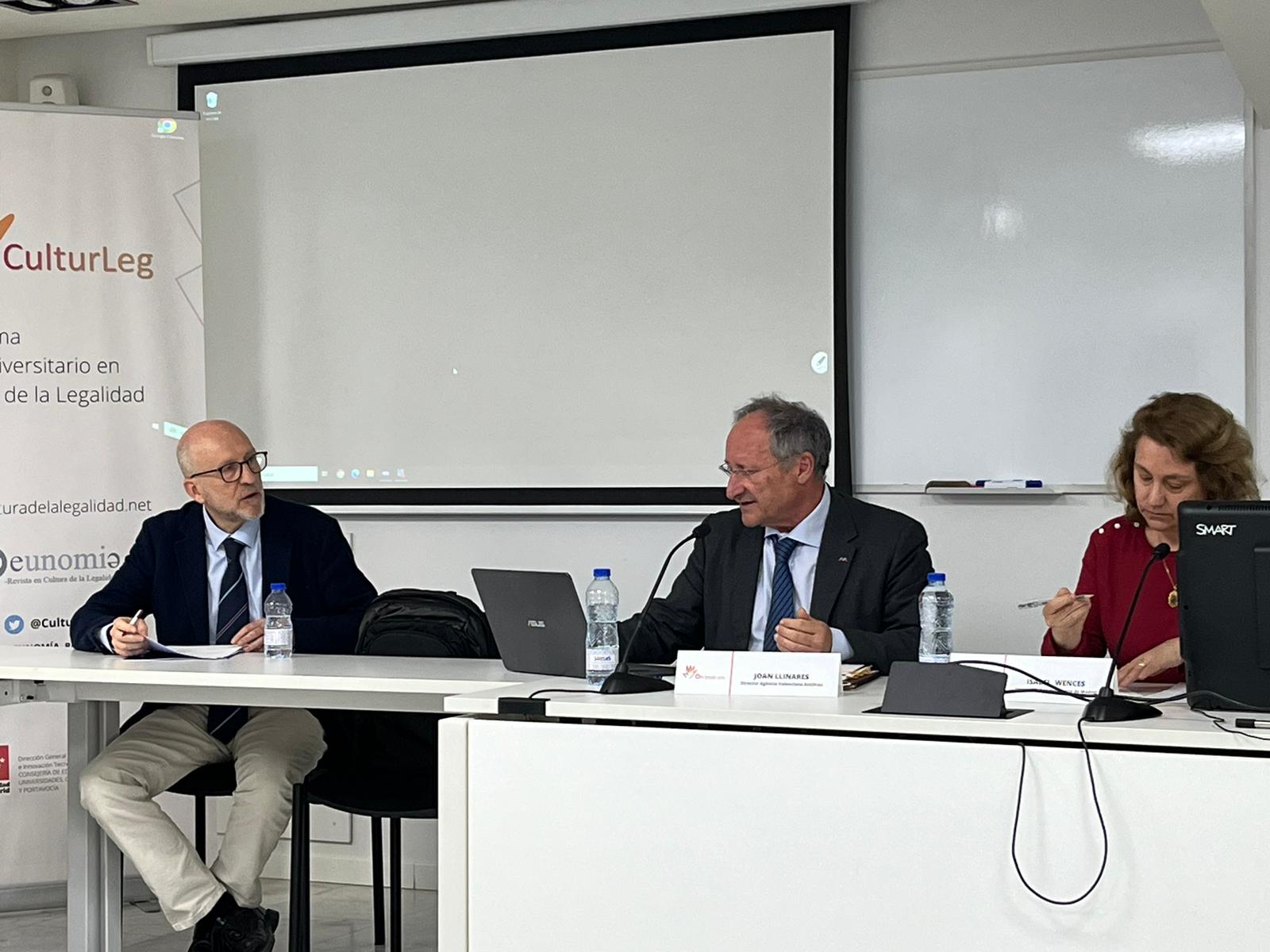Valencia, April 4, 2023.- The director of the Valencian Agency for the Protection of the Territory (AVPT), Manuel Civera Salvador, and the director of the Agency, Joan Llinares, have signed a collaboration protocol between both institutions that will help promote the Integrity Plan in which the Valencian Agency for the Protection of the Territory is working.
Within the general lines of the Integrity Plan, the implementation of complaint mailboxes, both internal and external, is contemplated, thus complying with the requirement of the new Law 2/2023 regulating the protection of people who report on regulatory infractions and the fight against corruption.
With this Law published in the BOE on February 21, the European Directive 1937/2019, on the protection of persons who report breaches of Union Law, better known as the Whistleblowers Directive, is transposed into Spanish law.
The Valencian Agency for the Protection of the Territory will enable as an external channel of complaints the complaint box of the Valencian Anti-Fraud Agency which will be visible on its website. This mailbox guarantees the confidentiality of whistleblowers as well as allowing the possibility of being able to make complaints anonymously.
The collaboration between both institutions will also extend to other actions and activities such as those of a training nature where AVPT staff will receive training in aspects related to the promotion of ethics and public integrity, as well as the prevention and detection of situations constituting fraud and corruption.
The AVPT Integrity Plan will contain, among others, an institutional declaration of integrity; incorporating institutional integrity into strategic planning; enabling a specific internal whistleblowing channel and connecting to the Agency’s external whistleblowing channel; the regulation and management of conflicts of interest; the training of personnel in integrity or the promotion and dissemination of the culture of ethics and public integrity.




